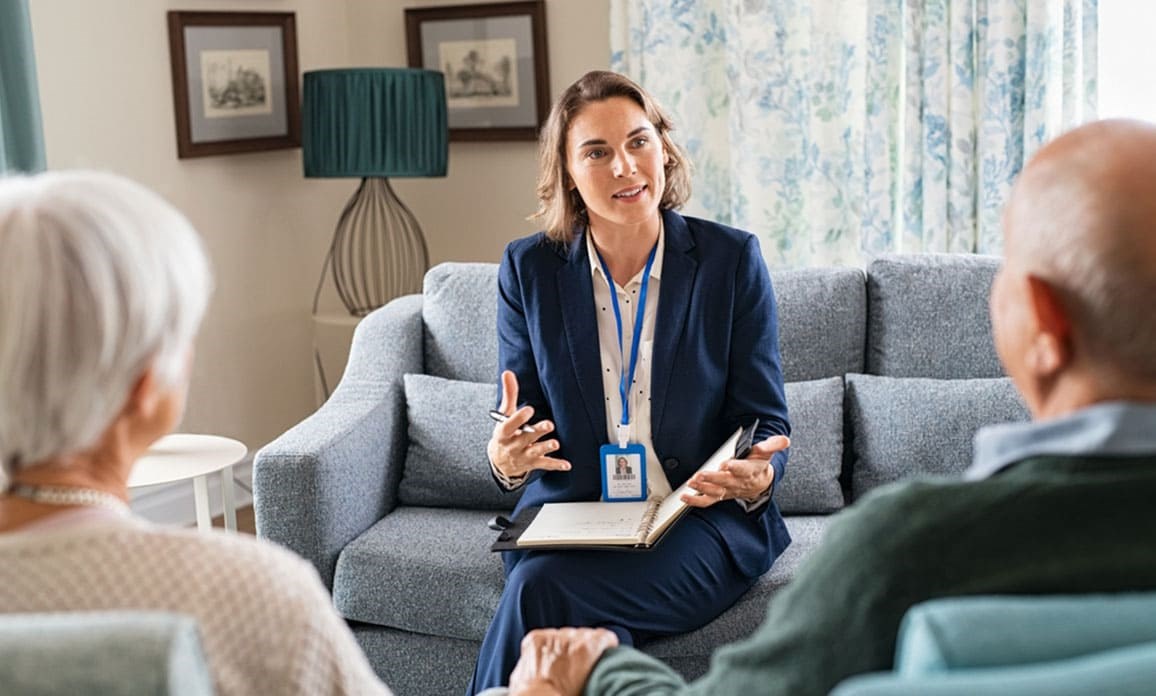Regaining Control of Your Life – A Neurologist’s Viewpoint, part 2
In the first part of this interview, we talked with Professor Hassin-Baer about the role of the patients and their family members in continuing to live their lives to the fullest including optimizing symptom control, maintaining a healthy work-life balance, and becoming active partners in managing the disease. In this part we hear her vision of the neurologist’s role and the multi-disciplinary team’s role in managing Parkinson’s; and the impact of future trends in society and medicine, such as digital health, on clinical practice and on patients’ lives.
Article Main Questions:
- What are the challenges in treating different types of patients and helping them with their own self-care and management of their condition?
- How important are patients’ own preferences when you come to decide on the best course of treatment for them?
- On the one hand, treatment options are becoming more complex, with many different factors coming into play. On the other hand, many patients now seem more aware of the different options they have, and doctors are no longer their single source of information on treatment options. How do you manage this tension in your practice?
- From your viewpoint, how has the role of the neurologist changed in recent years given the advent of digital health? Do you expect Parkinson’s patients to rely more on digital health in managing their disease?
- So, a close connection between doctors and patients is essential in your view.
- You work at a specialized Parkinson’s clinic. What resources do you have at the clinic to help patients manage their disease?
- a few take home messages on how to regain control of their life

What are the challenges in treating different types of patients and helping them with their own self-care and management of their condition?
When I sit down with a patient, I first try to find out who they are as a person. The more I understand the patient's background and support structures, the better I can adjust myself to them and tailor the treatment to their needs. I need to know more about the person. At what stage are they in their life now that they have been diagnosed? Maybe they just lost their husband or wife, maybe they have nowhere to live. You can't ignore these things.
When I ask patients how they are doing, some might say "fine"; others might ask me how they are doing. They don't give you much to work with. Some people just aren't great talkers; others aren't very aware of their own well-being. My goal is to help them take responsibility for things we can't do for them.
I sometimes see top executives who excel at managing business but who don't seem to be able to manage their own condition. When this happens, I bring them into their own comfort zone. I try to find out what tools they use in their daily lives, and how I can harness the same tools to their benefit. I challenge them. The patient needs to realize that they have a job to do here that nobody can do for them.
How important are patients’ own preferences when you come to decide on the best course of treatment for them?
I have undergone an incredible change as a doctor, now taking less of a “paternalistic” approach. I am a lot more conscious of patients' personal preferences. For example, were I to put a patient on DBS by implanting electrodes in their brain it might help their symptoms, but that’s not what they want. It may be my own top choice and that of any other person, but not the top choice of that patient, so I respect their choice. This goes for drugs, too. Oftentimes, I come across patients who are apprehensive about drugs, who worry that the drugs might somehow change who they are, cause dyskinesia, dementia, psychosis.
Some patients tell me: "I don't like drugs, let's try going without any drugs." But we can't help it – this condition is treated with medication. We should be thankful we have drugs, and the patient needs to realize that drugs are going to be their best friend. I would never want a patient to be delusional. In some cases, I can prescribe one pill a day and this regimen holds for two years. For most early-stage patients, drug treatment is very minor. If they are lucky it can hold for as long as five years. I tell my patients – this might be your case, too. Or it might not.
As a doctor, you have to give your recommendation, you have to tell it as it is. Sometimes when you see a patient who's struggling, you put yourself in their shoes and say: "If this were my father, my partner, even myself... I would do this or that."
I used to get mad at patients for not being willing to take drugs. For example, I would recommend a drug, they would seem to agree with my recommendation, and then they would come back one year later saying they hadn't taken it. That can be very frustrating, but I'm not as mad as I used to be. Maybe that's part of my "coming of age" as a doctor, realizing that doctors must be humble. We are not God, and we should be less decisive in our recommendations. Sure, we should advise a course of action which we think might work, but we shouldn't think we have all the answers. As a doctor, you never know how one specific patient might respond to treatment. You work with probabilities. There is some evidence-based data on the one hand, and there's experience and a gut feeling on the other hand, yet a lot is out of our hands. We need to take all parameters into consideration – the patient as a whole, their cognitive reserves, their personality, their emotional baggage. That's why, as a doctor, you have to make your recommendation with humility, making room for the patient to express their intuition, emotions, and capabilities. Sometimes the patient knows what's best for them.

On the one hand, treatment options are becoming more complex, with many different factors coming into play. On the other hand, many patients now seem more aware of the different options they have, and doctors are no longer their single source of information on treatment options. How do you manage this tension in your practice?
We have been giving more and more "assignments" to our patients in recent years. We want to give them a better understanding of their options and more choice. That's how I work. At every point along the journey of a Parkinson's patient there are several options to choose from. You can go one way or another, then maybe backtrack and try a different approach. We try to balance evidence-based medicine, the holy grail of our practice, with patient preferences and physician preferences. As I become a more seasoned practitioner, I give more weight to patients' preferences.
We should bear in mind that some older patients aren't well equipped to manage life in the modern world and their independent access to information is limited. On the other end of the spectrum, very young patients have a lot of knowledge and a false sense of exaggerated power. I really have to adjust my approach to every patient, to allow them to express themselves but also to draw the line where needed.
From your viewpoint, how has the role of the neurologist changed in recent years given the advent of digital health? Do you expect Parkinson’s patients to rely more on digital health in managing their disease?
There is a sense that the world is transitioning into digital health, that robots will treat people, that personalized DNA-based formulas are being developed, and that doctors will no longer be part of patient care.
To me, the patient-physician relationship is irreplaceable, it's not going anywhere. Patients cannot be expected to manage on their own. They won't let algorithms decide on their treatment. It's unthinkable that patients will have no way of expressing their wishes, nobody to talk to, and only be on the receiving end of the algorithm-generated treatment. Patients are petrified of this. We doctors will always be there.
On the other hand, there is a huge shortage of neurologists. We are the only medical professionals who can adequately treat Parkinson's patients because we understand the complexity of symptoms and the complexity of the burden with which patients are dealing. The need for our services keeps rising, but the neurologist-to-patient ratio keeps decreasing.
That's scary. We are less available to patients, but our role has never been more central.
So, a close connection between doctors and patients is essential in your view.
We see patients from all walks of life, wonderful, talented people, in a moment of weakness and humility. That brings out the best in them. A person like me who sees patients' feelings, because I have a close interaction with them, gets back so much love, trust, and reinforcement for the role I play in their life and for my contribution, and that's my reward. We as physicians give up a piece of our happiness by working with diseases and with people who are suffering. Sometimes the suffering is very dramatic – pain, incontinence, insomnia, depression, and anxiety. Their suffering is burning and scathing, and we are there for them. We don't always find solutions for patients. We see a great deal of frustration and some days are just horrible for us. Sometimes you get a sense that you weren't able to help one patient, and then another, and their suffering is tremendous. But in most cases, even with patients who are deteriorating, you are able to do something, and you know that even for those whom you weren't able to help, you were there for them, and you listened, and that's something.
I work with patients over the course of many years, from the initial diagnosis until their death. These years also include many happy events, such as weddings and grandchildren being born. Continuous care and a personal connection with the doctor are very important.
Many patients want to keep going back to the same doctor. They trust their doctor, and the doctor knows them and takes an interest in them. They get a sense that their doctor sees them and their needs.
You work at a specialized Parkinson’s clinic. What resources do you have at the clinic to help patients manage their disease?
Parkinson's disease affects movement. Patients experience a reduction in movement, stiffness, as if your own body is closing in on you. They must constantly work on developing their body, making big movements so that they don't succumb to the movement pattern of Parkinson's. Your Parkinson's wants you to make the smallest movements, move as little as possible. You must not let it take over the way you move. You have to work on making big movements, in front of the mirror or with a physiotherapist or instructor.
That's when I refer patients to the multidisciplinary team at my clinic. The multidisciplinary team allows me, as a doctor, to go beyond a general recommendation such as "be active".
The multidisciplinary team supports the treatment that doctors provide to their patients. The doctor oversees everything but having people around them who are experts on how things are done in practice, such as a physiotherapist who formulates a structured exercise plan, is invaluable. This gives doctors the option to offer more detailed advice and a richer treatment plan. The physiotherapist can also advise the patient on places in their vicinity where they can exercise. The multidisciplinary team help in making information more accessible, such as finding out what activities might be available, coming up with ideas and tracking progress.
The team can also help patients with access to other resources. They can get patients in touch with an occupational therapist, a physiotherapist, a speech therapist or a psychotherapist, and they help me compile a comprehensive, detailed plan for every patient. These health care professionals allow us to offer a truly holistic approach, not just a list of ideas. I can sit down with a patient for four hours and that still won't be enough. I want to cover all physical and mental symptoms, and also provide a treatment plan that goes beyond medication – which in itself takes time.
Unfortunately, these health care professionals aren't available everywhere, and sometimes their costs aren't covered by health insurance. We don't have enough providers in the community, and people with limited resources or others who must be careful with their finances can't always afford that part of the treatment.
A critical member of our clinic who serves many roles in supporting the patients, the families and the clinic staff is the Parkinson’s specialist nurse. Our head nurse shares a great deal of the doctors' knowledge, but is not authorized to prescribe treatment, although this differs between countries. Nurses fill the gap between doctors' orders and patients' actions. For example - how drugs should be taken, whether a minor adjustment to the current treatment is needed. Nowadays, with the aid of digital health tools, our nurses have evolved to serve as case managers who interact with patients separately and independently. Remarkably, patients are incredibly receptive of nurses' knowledge and influence.
There are many things that a nurse can do without a doctor's supervision, at her own discretion and using her own knowledge, while also communicating information back to the doctor succinctly and efficiently. This is important since doctors remain a bottleneck in the Parkinson's treatment process. Nurses who specialize in Parkinson’s also play a role in supporting patients, for example, patients who have late-stage, non-motor complications, such as uncontrolled blood pressure, psychosis, pain, serious sleep disturbances and incontinence. In such cases nurses have many ways of helping. With the help of a good nurse, you can see your neurologist just once a year.
As we’re nearing the end of our interview, please give patients a few take home messages on how to regain control of their life:
- Find yourself a doctor who will remain your doctor for the long run. This doctor should educate you, and should be attentive and responsive, to plant the seeds of hope inside of you and to empower you to take the action needed to continue living your life to the fullest. Being consistent and sticking with one doctor allows continuity of care and a deeper and more effective relationship.
- Keep doing what you love to do. If you work, keep working; if you have hobbies, keep doing them. Maintain your relationships, nurture your family, and invest time and effort in those you love. Don't disconnect yourself from other people. Rise above the desire to withdraw and hide away, you must preserve everything you have overcome.
- Be physically active, that's a big key success factor. Keep active to slow down the physical deterioration. Even if you have never really engaged in physical activities or sport, don't be shy, go for it, try it out.
- Try to know as much as possible about the disease. Focus on the points where it is affecting you. Don’t turn the disease into your profession, but something you're coping with and living with.
THIS ARTICLE DOES NOT PROVIDE MEDICAL ADVICE and is not a substitute for professional medical advice, diagnosis or treatment. If you or any other person has a medical concern, you should consult with your health care provider or seek other professional medical treatment immediately. Never disregard professional medical advice or delay in seeking it because of something that you have read on this website or in any linked article, blog or other materials.








